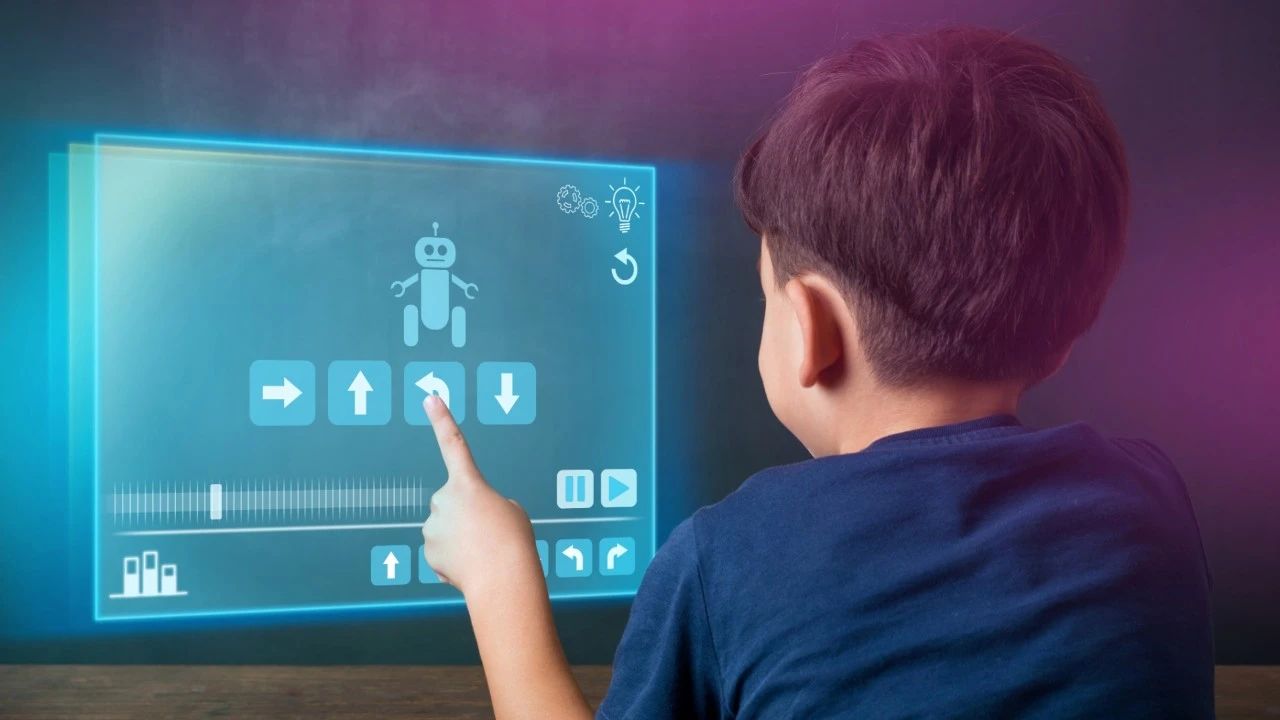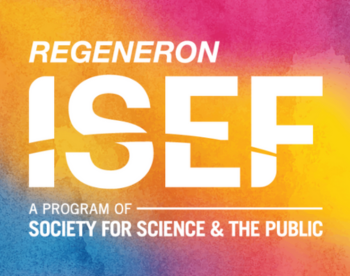How can robotic research shine in the arena?
As a popular direction in scientific research, robotics is a subject that countless students yearn for. Learning programming and being exposed to robots from a young age is the "standard choice" for many students on the international track.
But many parents also have concerns:
Can these "standard configurations" allow students to truly master robots?
Now that ChatGPT can easily write code, in what direction should robotics research be "rolled" so that children will not be replaced by AI?
How to make children's interest in robots "take root and sprout" and complement the knowledge in school?
an absolute master in the field of robotics & artificial intelligence, has rich experience in teaching science and innovation to middle school students. He has accompanied many students to explore the field of robotics and guided them on the academic road. Today, let us review his love. Share, I believe his professional answers can give you some inspiration!

Teacher A | Tongji University and Cornell jointly cultivate postdoctoral fellows
💫Associate professor of artificial intelligence in a domestic university and head of the Robotics and Intelligent Manufacturing Laboratory. He has long been engaged in research related to intelligent robots and artificial intelligence.
💫In recent years, he has hosted and participated in more than 10 projects entrusted by the National Natural Science Foundation, Shanghai Natural Science Foundation and enterprises; published more than 20 SCI/EI papers in international or domestic academic journals, and authorized and published more than 30 invention patents , 1 monograph on robot control; won 1 first prize of Shanghai Technology Invention Award
💫Has rich teaching experience, the courses taught have been approved as municipal key courses in Shanghai universities, and the students guided by the team have won first prizes in national competitions and national innovation project funding for many times.
01. The true meaning of scientific research is to explore students’ potential
"Programming is actually very different from actually studying robots. When you really want to study robots, programming ability is more of a tool." Teacher A confessed to us, "I have taught many students with no basic knowledge. Compared with programming ability, I think Hands-on ability will be even more critical, because it is easier for students to discover problems, think and make some innovations during the hands-on process.”
Students will discover problems when they do it themselves, design solutions by consulting corresponding materials, and finally solve the problems under the guidance of instructors. This methodology is not difficult for middle school students, but in the domestic education environment, students generally do not practice it systematically until they are at the graduate level. Therefore, exposing middle school students to scientific research is not actually "going beyond the syllabus", but stimulating their potential.
We have encountered that many parents and students are afraid of difficulties before they decide to do scientific research. This is actually normal. The fear of difficulties is more due to the lack of in-depth understanding of scientific research projects.
Therefore, before officially starting the scientific research course, Teacher A will design many basic courses to enlighten students and build interest and confidence step by step . These courses usually introduce the history of the development of robots, the composition of robots, and an introduction to current cutting-edge technologies. They slowly focus on the robots students want to make from broad robot concepts, guiding them to think about how to combine theory with practical skills.
Of course, there are also “super-category” contents. If we want to conduct complete robot-related scientific research, we usually need the following capabilities:
①Programming software such as Python or C language
②Knowledge of hardware mainly based on embedded microcontrollers
③Circuit design
④Mechanical design such as 3D printing, etc.
Teacher A suggested: If you want to try scientific research, you can get in touch with knowledge in these fields at the junior primary school level. But he also reiterated that learning this knowledge in advance is not the purpose of doing scientific research. It is the meaning of middle school students to do scientific research that they are exposed to the ideas and methodologies of scientific research in advance.
02. In the era of embodied intelligence , the combination of software and hardware is very important .
ChatGPT has taken the world by storm, and many parents are beginning to worry that AI will replace programmers in the future. They are worried that their children will be unemployed after graduation after learning CS. Faced with such concerns, Teacher A also gave his own advice from a professional perspective. view.
Teacher A introduced us to a brand new concept - embodied intelligence , which is the latest research direction in the field of robotics. I believe that many readers may have heard of this concept for the first time like me. Let us first take a look at the specific definition of embodied intelligence :
What is embodied intelligence ?
Embodied AI refers to the body and an intelligent agent that supports physical interaction. Specifically, embodied intelligence has a physical body that supports sensation and movement, can perform active perception, and can also perform physical tasks. There is no non- embodied intelligence. The many limitations of physical intelligence .
More importantly, embodied intelligence emphasizes the importance of the "perception-action loop", that is, the process of sensing the world, modeling the world, taking action, verifying and adjusting the model.
The concept is too abstract and hard to understand? Teacher A gave us an example. For example, the famous AlphaGo launched a world-famous "human-machine war" with the world's number one world Go champion Ke Jie, and finally won with a total score of 3 to 0. It uses a deep set of tools to play chess. Learning algorithms.
Embodied intelligence puts more emphasis on putting algorithms into hardware, so that robots can perceive and obtain data, make decisions independently, and finally control their own behavior, such as humanoid robots, unmanned vehicles, etc.
Teacher A’s robotics and intelligent manufacturing research team focuses on the research on perception and control of intelligent robots and has a very wide range of application scenarios.
In scientific research competitions, this type of project has a unique advantage: giving students the opportunity to display physical objects! Especially in competitions such as Youth Science Competition /ISEF where students have personal booths, this advantage will be even more significant.
In addition, making hardware can also help children highlight their academic abilities. Nowadays, many robot-related research stays at the simulation stage and does a pure algorithm design. It will be more difficult to truly achieve hardware design. Higher education requires mastery of knowledge from many other disciplines, so this is also an advantage in participating.
Of course, for middle school students, if you want to combine software and hardware, you need to consider each student's own situation. Teacher A will also make timely adjustments according to the child's situation when teaching. For example, if some students only know about software programming, they can first use a simpler microcontroller to get started with hardware. In this way, even if they have not learned hardware knowledge, they can learn it quickly, but our final goal must be to move towards software and hardware. Work hard in conjunction with the direction.
03. Small interests, big scientific research is the key to achieving middle school students’ scientific research
If you want your child to do scientific research, should it be done in a direction that interests him or in a direction that he is good at? This is a question that troubles many parents.
At this point, Teacher A shared his own experience. He originally studied software and computers, but because he liked tinkering with his hands since he was a child, he chose to study robots and is still studying them today.
Therefore, in Teacher A’s opinion, interest is more important for middle school students’ scientific research than being good at it. Genuine interest can prevent children from thinking about what this thing can bring to themselves, and they can devote themselves to doing what they want to do and get the knowledge they want.
In addition to being exposed to cutting-edge knowledge that they usually have no access to, middle school students doing scientific research can also help children have a clearer plan for life. Teacher A usually teaches many college students. He found that many children in China are still confused about their lives even at the postgraduate stage. They are used to cramming education and still want to "follow the crowd."
Therefore, when middle school students do scientific research, they actually allow children to break away from the herd mentality as early as possible, exercise their ability to proactively think independently and innovate , and choose their future study and work direction through practice.
For some students who have not determined their own direction, they can also take advantage of the opportunity of scientific research to learn about this subject and explore what they are really interested in.
After chatting with Teacher A, I also benefited a lot and gained a new understanding of robot research. Just like what Teacher A said, domestic students now lack opportunities to be exposed to scientific research ideas and methodologies . They always regard those cramming courses as robotics research, missing a good time for the enlightenment of interest.
Helping students get closer to and understand scientific research through one-on-one scientific research planning is our original educational intention. We hope that more children can discover their potential through scientific research and achieve extraordinary selves. Since its establishment, we have accompanied students from different backgrounds, starting from "small interests" and achieving unique "big scientific research" , helping them knock on the door of their dream school .



